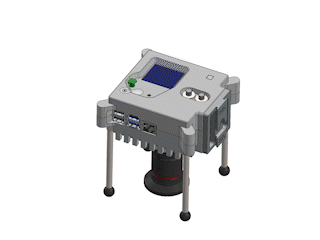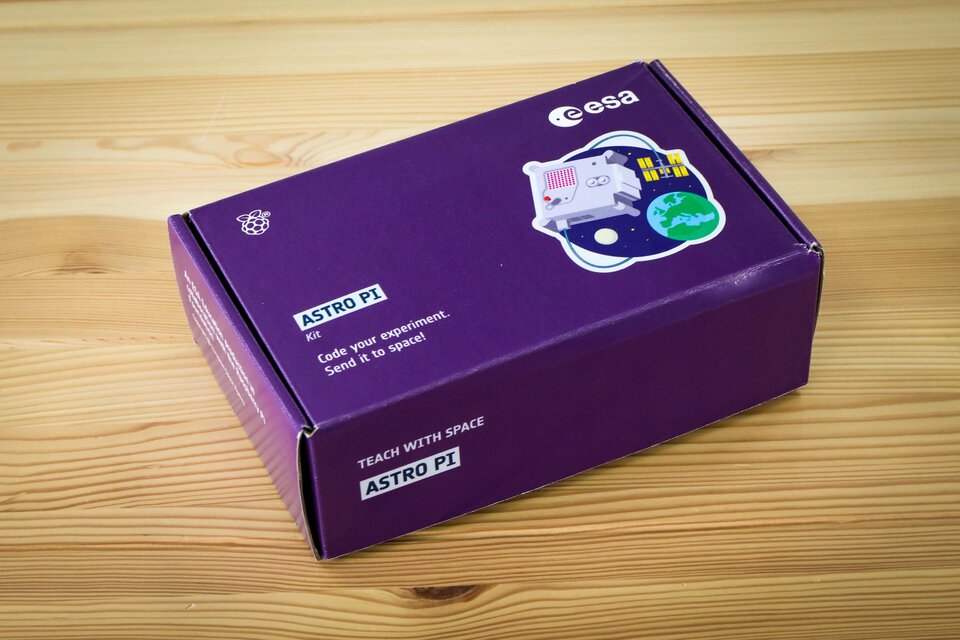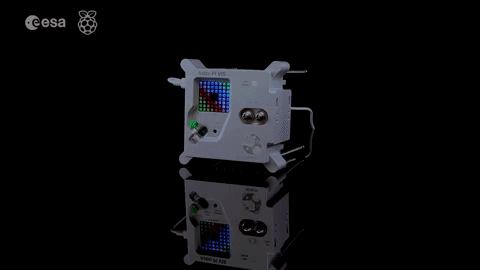502 teams have progressed to Phase 2 of Astro Pi Mission Space Lab 2021-22
In brief
The European Space Agency in collaboration with the Raspberry Pi Foundation are delighted to announce that a record 800 teams from 23 countries submitted experiment ideas for this year’s European Astro Pi Challenge Mission Space Lab - an incredible 83% increase in participation from last year!
In-depth
This means over 3100 young people from across Europe have taken part in Phase 1 of the challenge. From the 800 teams in Phase 1, 502 have been selected to progress to Phase 2 of the challenge. This is 26% more than the number of teams that progressed last year, despite the huge increase in submissions and the fierce level of competition.
Mission Space Lab

In Mission Space Lab, teams of young people aged up to 19 create scientific experiments that run on the International Space Station’s two Astro Pi – Raspberry Pi computers – in space, ready cases with cameras and an array of sensors.
This year, all Mission Space Lab experiments will be run on new, upgraded Astro Pi units, consisting of the newest model of the Raspberry Pi computer, an upgraded camera, and an augmented sensor board. This equipment will enable participants to do a wide range of experiments than ever before, some of which were not previously possible, such as experiments using elements of artificial intelligence, advanced machine learning, and higher-resolution photography.
In Phase 1 of the Challenge, teams submit an idea for an experiment investigating either Life on Earth or Life in Space. Teams that choose to investigate Life in Space use the Astro Pi inside the Columbus module on the ISS to investigate the environmental conditions onboard.
Teams that choose to investigate Life on Earth use an Astro Pi placed in the Earth observation window on the ISS, including its sensors and its visible light or near-infrared high quality camera, to investigate life on the planet’s surface.
Astro Pi kits

The best experiment ideas submitted at Phase 1 then progress to Phase 2 and receive a special Astro Pi kit to help them write their experiment programs.
These kits include a Raspberry Pi 4 computer, a Raspberry Pi High Quality Camera and the same sensors that are on the Astro Pi computers on the ISS. In addition, teams conducting experiments involving machine learning will receive a Coral machine learning accelerator, and teams conducting experiments involving InfraRed photography will receive a red optical filter.
All successful teams have been notified by email and the Astro Pi kits will soon be on their way to them. The teams will then have the opportunity to familiarise themselves with the Astro Pi sensors and cameras, and to create, test and re-test their code!
What’s next?
The deadline for submitting Phase 2 experiments is Thursday 24 February at 23:59 GMT / 00:59 CET.
A note to teams: To help teams get started with their experiments, they should consult the Mission Space Lab guidelines which will help them throughout the Challenge. They should also pay particular attention to our Phase 2 project guide, in which we have collected essential information about writing their program and what is and isn’t possible with the Astro Pi hardware and software. Reading this carefully will give teams the best chance of moving on to Phase 3, as their program must comply with the requirements stated in the Phase 2 guide.
Teams can find additional supporting resources on the Astro Pi website.
Congratulations to the successful teams and thank you to everyone who entered Mission Space Lab this year. If your team was unsuccessful this time, we’re sorry for the disappointment and hope you re-enter next year.
There’s also still time to enter Mission Zero, to vote for which European scientist you think we should name the units after.


